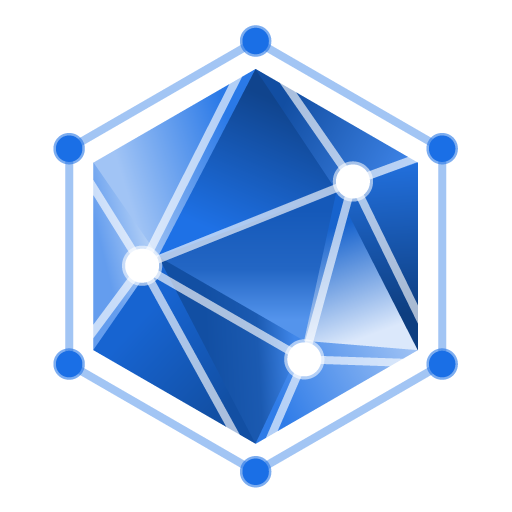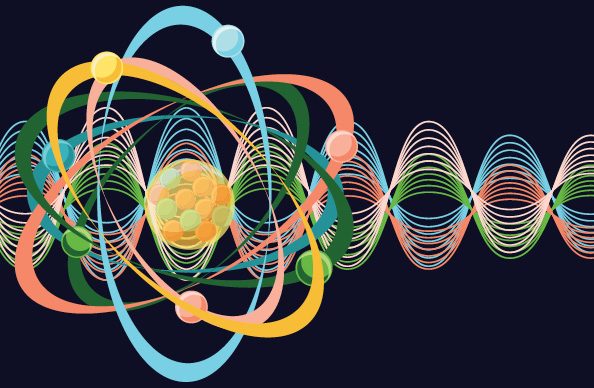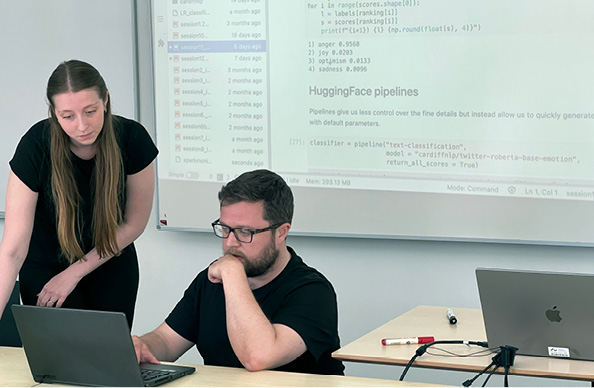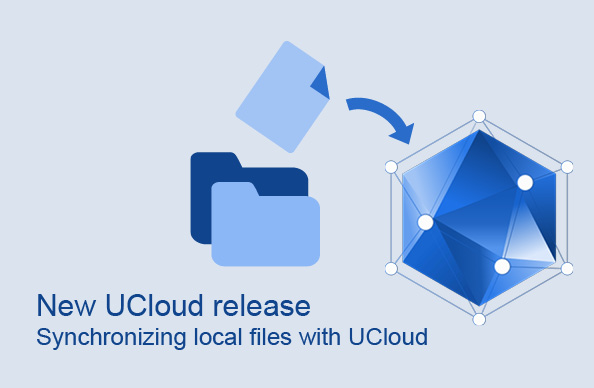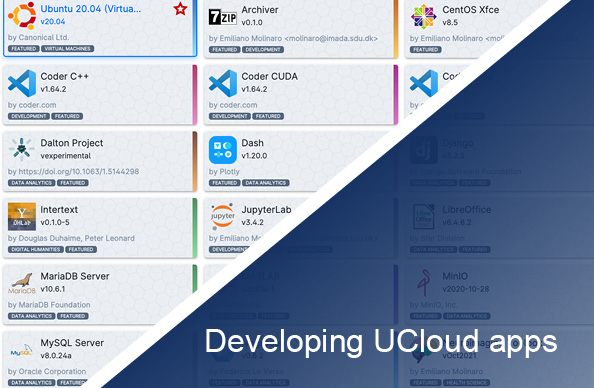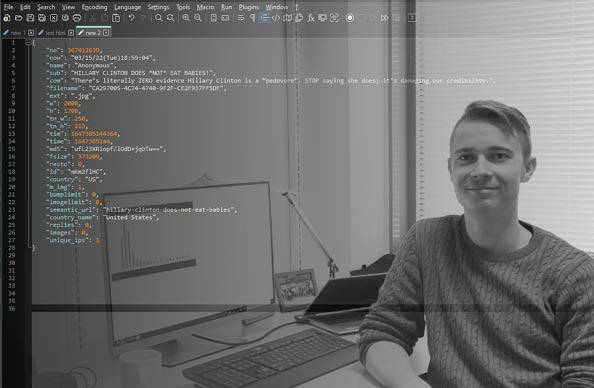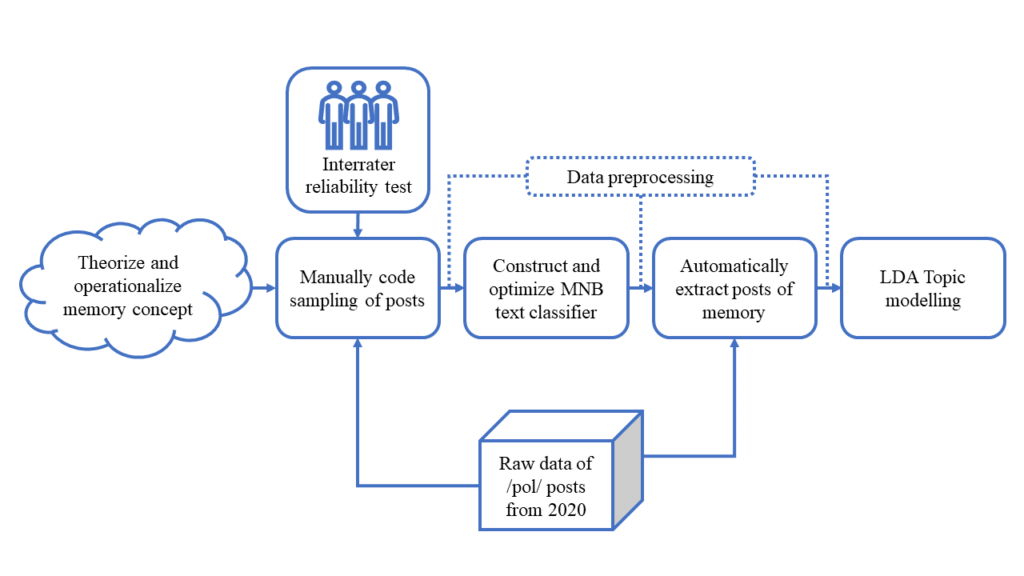Though supercomputers form the key basis of his research, UCloud has been a valuable, complementary tool for Tobias and his colleagues and will most likely continue to be so in future work as well.
Post.doc. Tobias Tsang works within the broader research field of theoretical particle physics. As part of the Centre for Cosmology and Particle Physics Phenomenology (CP3-Origins) at University of Southern Denmark, his research more specifically concerns quantum field theory and quantum chromodynamics (QCD), i.a. how fundamental particles, protons and neutrons, interact with each other:
My research aims to provide high precision predictions based solely on the theory of the Standard Model – the best-known understanding of the interaction of fundamental (i.e. not containing ‘smaller constituents’) particles. This is done via very large-scale numerical simulations using the most powerful supercomputers around the world.
Post.doc. Tobias Tsang, Centre for Cosmology and Particle Physics Phenomenology (CP3-Origins) at University of Southern Denmark
Experience and achievements
More traditional mathematical methods that can be written down with pen and paper do not apply for research on quantum chromodynamics. As such, Tobias’ research relies on a method called ‘Monte Carlo’ which is applied to compute statistical field theories of simple particle systems. Though this type of research is done using very large supercomputers, Tobias has recurrently applied UCloud for exploratory studies of smaller volumes of data:
When doing large scale simulations, we sometimes do it on something called ‘10,000 cores in parallel’, and clearly this is not something we can easily do on a resource like UCloud. But for the small exploratory studies, UCloud is a nice resource in the sense that it is available; you don’t have to sit here on a hot day and burn your laptop to death – you can send it to UCloud and run it there. I think this is kind of the point where I have used UCloud the most; for small exploratory studies and some of the projects that don’t need a huge amount of computer time but still a significant portion.
Post.doc. Tobias Tsang
Though UCloud has served as a supplemental rather than a key tool in Tobias’ work together with the CP3-Origins research centre, he describes it as a nice complement to other HPC resources:
“I don’t think UCloud will ever be the only resource we use. But this is also the design of it; UCloud is not meant to be a huge machine, it is meant to be an available resource that is easy to use and that gives you a playground to set up things really from scratch where you can test things out and run smaller jobs and analyses. In that sense, it is quite complementary to a lot of the things we normally work with. For exploratory studies and for code testing, UCloud will definitely remain very useful.”
Post.doc. Tobias Tsang
At one specific project done at SDU as a collaboration between CP3 and IMADA (Institute of Mathematics and Data Science) a few years back, the vast majority of samples were generated on UCloud, and a significant amount of data production and measurements were also carried out on there [1]. UCloud needs, however, to be considered a part of a whole, according to Tobias:
“It is not that one particular machine made it possible; we would otherwise have found another machine to run it on. But UCloud provided us with a nice set up where we could just use local resources without having to go through big grant applications to get computer time.”
Post.doc. Tobias Tsang
Pros and cons
In terms of time optimization, UCloud has also been a game changer for Tobias:
One of the nice things about UCloud compared to other machines is the wall clock time: quite often, for larger clusters, depending on the cluster though, you are very much restricted by the queue policies. So, there are some clusters where you have a maximum run time of 4 hours, and if you happen to run a small job that is longer than this, then you can’t – you have to always tailor your job to fit exactly and to make the maximum use of it. On UCloud you have a 200-hour wall clock. This is very helpful as for a lot of these things that have to run sequentially, you might not need a huge resource, you just need to have a long enough time span to actually do it.
Post.doc. Tobias Tsang
Though UCloud slowed the work process down a bit in the beginning as everything had to be installed and set up, this downside was quickly resolved and overshadowed by the benefits:
“Once you get used to it, you can kind of equalize the work process to what you would have on a cluster where everything is just readily installed.”
Post.doc. Tobias Tsang
Despite pros and cons, Tobias describes UCloud as a flexible system:
The fact that UCloud is really just a virtual machine has both positive and negative sides. The positive side is that you are really free to do whatever you want to do; you can install everything and you don’t have any restrictions that you would have on larger clusters where you can’t easily install software, or you can’t install it into the parts where you want to install it. On larger clusters, you are typically limited by the compilers that are already there. So, from that point of view, UCloud, at least to me, seems like a more flexible system. The downside is that you have to install everything; you can’t just quickly run something, you kind of have to constantly install everything from scratch.
Post.doc. Tobias Tsang
Last but not least, Tobias stresses the interaction with the UCloud front office as a major benefit that has helped the research group significantly, especially compared to other clusters with a much longer response time:
One of the nice things with UCloud as a general system is that every time something didn’t work, we got a really quick email back. Any questions we raised were answered quickly, so it was never something that kept us stuck for weeks or months – typically things were resolved in a very timely time scale. And things that we actively suggested as nice features or things that we thought were missing on UCloud were likewise addressed.
Post.doc. Tobias Tsang
[1] Della Morte, Jaeger, Sannino, Tsang and Ziegler, “One Flavour QCD as an analogue computer for SUSY”, PoS LATTICE2021 (2022) 225, https://doi.org/10.22323/1.396.0225
